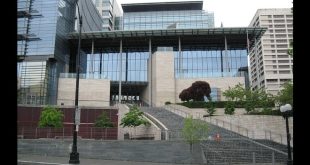Is black Americans’ historic struggle to be treated as first-class citizens of the country of their birth similar to the homosexual lobby’s demand for special rights?
Earlier this year, a Michigan judge ruled that a 10-year-old, voter-approved constitutional amendment that defines marriage as the union between one man and woman was unconstitutional. Michigan Attorney General Bill Schuette appealed the ruling. For now, the law still stands, pending appeal. (Schuette also appealed a ruling that struck down the state’s ban on factoring race into government hiring, contracting, and admissions decisions. Last month, the U.S. Supreme Court upheld the ban.)
Black pastors in Detroit are up in arms over the court’s decision and the comparison. An excerpt:
One hundred Detroit black pastors maintain that this decision was made under the false guise that the majority of the people of Michigan are discriminating against the civil rights of lesbians and homosexuals due to their sexual orientation or preference.
…
“To state that marriage redefinition is in any way similar to the civil rights movement is intellectually empty, dishonest and manufactured,” says minister Stacy Swimp, founder of Revive Alive Missional Ministry. “When has anyone from the LGBT demographic ever been publicly lynched, specifically excluded from moving into neighborhoods, prohibited from sitting on a jury and denied the right to sue others because of their sexual preferences?”
Homosexuals have the same civil rights as everyone else; they seek special rights. A tiny minority wants to essentially render meaningless an institution that serves as the foundation of society, and invokes 1960s-era civil rights rhetoric (and demonizes those who oppose the attempt) to achieve it. The more black Americans challenge homosexuals equating sexual behavior with skin color, the better.
Photo credit: Archives Foundation (Flickr Commons)
 CURE News and Clergy Blog News and Commentary for Christians
CURE News and Clergy Blog News and Commentary for Christians



